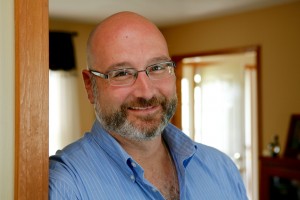Beyond the Bullet Points: When will the Mission Die?
I asked my doctor how I would die. Her answer was that If this treatment didn’t work we had more treatments after that and another treatment after that and still more tries after that. And if all that doesn’t work no one dies in pain. None of this, of course, answered my question which is how does one actually die from lymphoma. It was, however, the answer I expected. No one wants to accept failure. No one wants to be part of a loss of hope.
To be sure, my path with cancer has had its times of lost hope when, as my wife and I refer to it, “I go there.” However, this is not why I asked the question. I wasn’t giving up. I didn’t ask out of despair. I wanted to know. I needed to know. I needed to understand because, for me, I need to know what I am fighting against.
I tell you this story because I have been talking with a few people I really admire who are asking tough questions that could also be easily mistaken for despair. They are questioning professional choices. They are, in their words, becoming cynical. They are “going there” and beating themselves up for it. They seem to feel that people who fight for progress, who are pioneers, aren’t allowed to ask those questions. For some reason questioning a mission is a sin and an admission of defeat. It is not.
I wrote before about using cancer. Using it to re-prioritize, to take a break. While I had hoped that my using cancer days were done, I find myself again facing that re-prioritization. This chemo is tougher than the last. I find it harder to concentrate. I have less stamina. Where the last chemo regime resulted in keynotes and a MOOC, this one is focused on treatment and teaching. This is not a defeat. This is a chance for a professional break and a useful distance. Rather than pumping out the next keynote, I can listen. Rather than pushing out a paper I can read beyond libraries. This is a necessary pause. I have had them before after the closing of AskERIC and after virtual reference went from hot topic to standard service. But that time lead to participatory librarianship and the Atlas. It allowed me to look deeper.
A pioneer and a professional should have a mission and seek to change the world. They will also encounter resistance. They will question the mission and they will question themselves. They will go there. Do not despair. Do not punish yourself for doubt. Do not be afraid to ask how that mission or how that passion will die. Because here is the secret. A good mission and a solid passion will not die easily.
Do you want to know the answer to how this cancer will kill me? It will kill me if I do nothing. It will kill me if I ignore it or if I feel the price of the fight is greater than the price of death. It is not. Changing the world is hard. The cost of the mission is high. It is only reasonable to ask how high and you can only know that answer if you honestly assess the cost of failure. If that cost becomes too dear, then perhaps you were meant to change the world another way.
About the Author
R. David Lankes is a professor and Dean’s Scholar for the New Librarianship at Syracuse University’s School of Information Studies and director of the Information Institute of Syracuse. Lankes has always been interested in combining theory and practice to create active research projects that make a difference. Past projects include the ERIC Clearinghouse on Information and Technology, the Gateway to Education Materials, AskERIC and the Virtual Reference Desk. Lankes’ more recent work involves how participatory concepts can reshape libraries and credibility.








